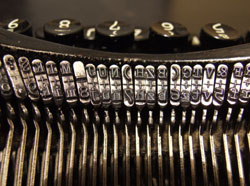Reunion in Rome
Cardinal Lubomyr Husar, the major archbishop of the Ukrainian Greek-Catholic Church, spoke with the Register.
His Beatitude Cardinal Lubomyr Husar, the major archbishop of the Ukrainian Greek-Catholic Church, made a historic trip to Rome recently as Ukraine’s bishops made their first ad limina visit to the Pope in 70 years.
Register correspondent Edward Pentin recently spoke with Cardinal Husar about his concerns for Ukrainian Catholics and about his close ties with the United States.
What concerns did you raise with the Pope and Vatican officials on your ad limina visit?
The primary purpose, after so many years of absence, was not only I personally but the entire group wished to thank the Holy Father in person, and his predecessors and collaborators, for what the Church of Rome has done for our Church, especially in the period of our silence — forced silence.
Then, the priorities that interest us the most are to prepare clergy and to prepare laypeople for the new life. During the time of persecution, our Church survived through the grace of God. But we have to be very conscious that, notwithstanding the difficulties, it was in a certain sense easier because things were pretty much black-and-white.
Now that we have been liberated and now face the world that does not persecute us directly, we have to find the inner force, and the inner conviction to live as members of Christ’s church.
There have been many people who have, thanks be to God, remained faithful in the sense that their faith has not faded. But they had difficulty being Christians from Monday to Saturday, having been educated in communist schools.
In the practical life, perhaps I can illustrate the difficulty in this way. Anyone who follows the situation in Ukraine today is conscious that there are many, many disorders in political, economic, social and cultural life. And many people think: “How come? What has happened?”
The answer is actually rather simple. I would say: Communism tried to do away with God, Christian morality. They didn’t completely succeed.
But they have wounded people deeply and people today, even when they know what they should do — many, however, do not — but even those who do know, don’t find it easy to live fully according to the moral precepts of Christ’s teaching.
In recent years, the Russian Orthodox Church has accused Catholics of proselytizing after the fall of communism. What is the current situation regarding Catholic-Orthodox relations in Ukraine?
In the Ukraine, we don’t have this accusation as frequently expressed as it is in, for example, Russia. But we do not have any formal dialogue or any formal contacts.
However, we do have contacts in a different way, meaning we have in Ukraine an old Ukrainian council of churches and religious organizations, which is composed of Catholics, Orthodox, Protestants and even Muslims and Jews. There are 19 members representing numerous traditional religious bodies and we collaborate. We discuss things together; we react to certain realities together.
You see, our interconfessional situation is very peculiar, and even though we don’t try to hide our differences, somehow we manage to go forward, not always 100% peacefully, but to a great extent peacefully and creatively.
Maybe that’s the peculiarity of our situation in Ukraine, even though, as I mentioned at the beginning, in certain respects we have no special, very formal relations.
A couple of years ago, the Ukrainian Greek-Catholic Church had a dispute with the Orthodox when you decided to move your patriarchate to Kiev. Has this dispute now been resolved?
The problem is this: Returning to Kiev after 200 years was seen by some Orthodox as aggression on what they consider canonical territory. But maybe I could relate a concrete example: A few days after the formal transfer, we celebrated Independence Day on Aug. 24. And as I was walking down the street, two elderly ladies came up, recognized me, maybe from television or whatever, and said: “We are teachers by profession, we are Orthodox, and we welcome you in Kiev.”
That was a very touching moment for me. It was completely unsolicited, so spontaneous and natural, and I think the majority of the population has reacted this way. There have been certain groups, there’s been formal but not very strong opposition in the sense that today, in our daily lives, it doesn’t present any real problem.
We feel very at home and very welcome.
What were the highlights of studying at The Catholic University of America? What did you learn from that formative time in the United States?
In my own personal life these were very happy moments and I think back with joy.
I would like to say that looking back today, I am very grateful to the United States because I came to the U.S. as a displaced person, as we were known, that is persons who had no place to go because of the Second World War.
The United States welcomed us, and gave us the opportunity to study, work and develop. Especially when I look back into my own life I am very, very grateful for that, as a person but also for my own family and all those who have found a home in the United States and for whom the U.S. has been open to receive and to give the possibility of a normal life.
Edward Pentin writes from Rome.
- Keywords:
- March 2-8, 2008
















